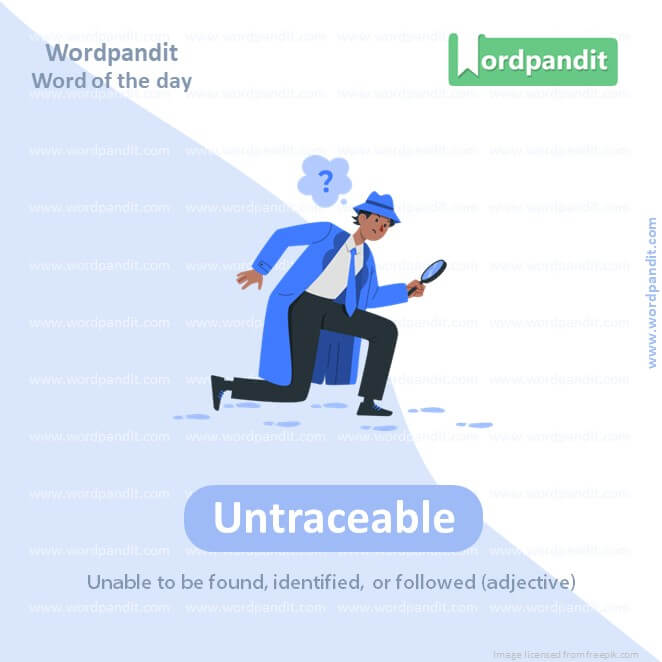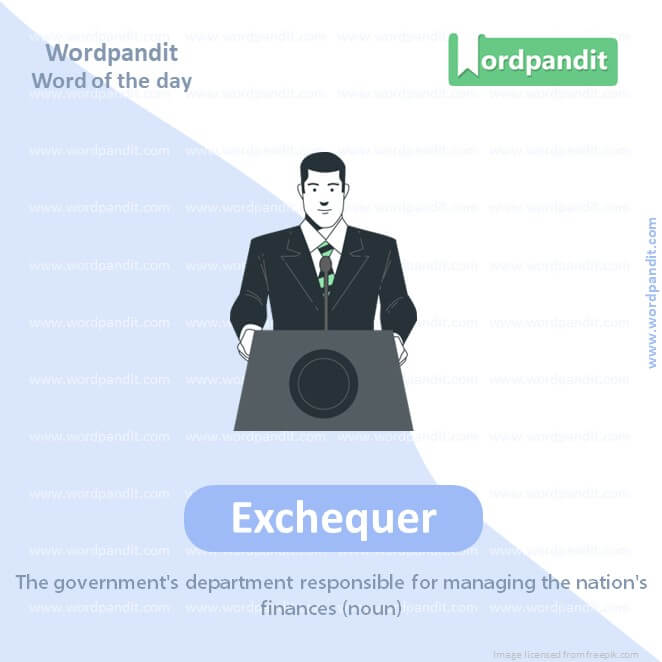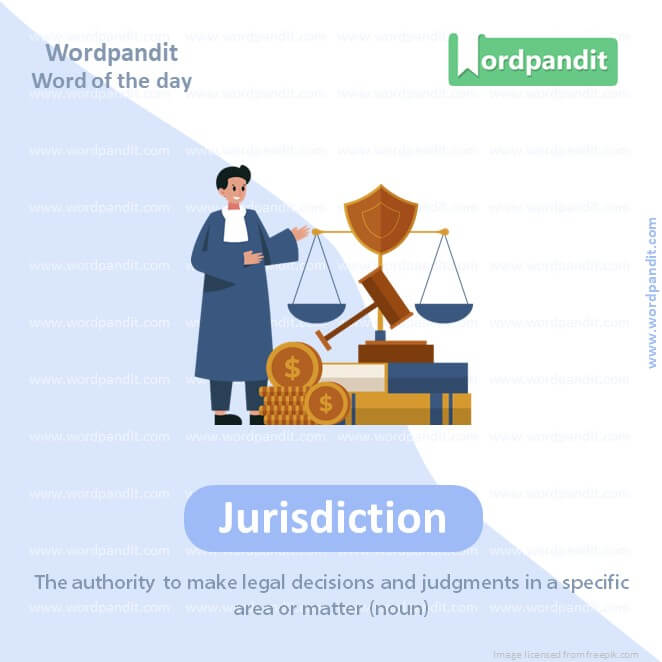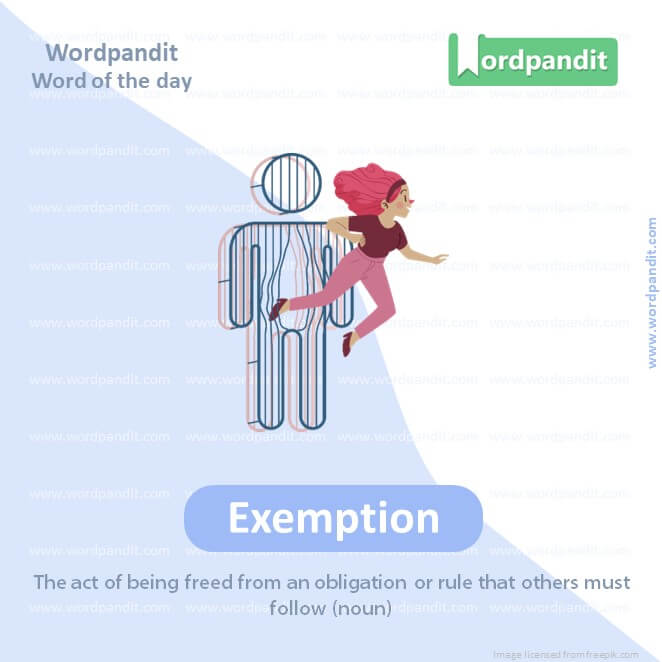Daily Vocabulary Words: List of Daily Used Words
Hi there. Welcome to this special section @ Wordpandit.
Our endeavour here is straightforward: highlighting important daily vocabulary words, you would encounter in The Hindu. This is your repository of commonly used words; essentially, we are posting a list of daily used words. Hence, this has significant practical application as it teaches you words that are commonly used in a leading publication such as The Hindu.
Visit the website daily to learn words from The Hindu.
WORD-1: Ramifications
CONTEXT: the safety and financial ramifications of illegal offshore betting and gambling markets.
SOURCE: [Source]
EXPLANATORY PARAGRAPH: Think of a tree with many branches. Each branch can lead to different smaller branches. In the same way, when you do something, it can lead to many different results or situations, just like the branches of a tree.
MEANING: The multiple outcomes or consequences that result from a single action or decision (noun).
PRONUNCIATION: ram-uh-fi-KAY-shuns
SYNONYMS: Consequences, outcomes, repercussions, aftereffects, results.
USAGE EXAMPLES:
1. The teacher explained the ramifications of cheating during exams.
2. Understanding the ramifications of your choices can help you make better decisions.
3. The new law had several unexpected ramifications for the local businesses.
4. He didn’t consider the ramifications of his actions on his family.

WORD-2: Untraceable
CONTEXT: the clandestine and untraceable operations of these platforms are causing substantial losses to the exchequer.
SOURCE: [Source]
EXPLANATORY PARAGRAPH: Imagine you draw a picture on the sand, and then waves come and wash it away. After that, you can’t find your drawing anymore. Something untraceable is like that drawing; it’s something that you can’t find or track down anymore.
MEANING: Unable to be found, identified, or followed (adjective).
PRONUNCIATION: un-TRAY-suh-bull
SYNONYMS: Undetectable, invisible, hidden, obscure, elusive.
USAGE EXAMPLES:
1. The detective found the clues to be untraceable.
2. The stolen artwork was untraceable, leaving the museum in despair.
3. They used a special method to send untraceable messages.
4. The origins of the ancient relic were untraceable.

WORD-3: Exchequer
CONTEXT: the clandestine and untraceable operations of these platforms are causing substantial losses to the exchequer.
SOURCE: [Source]
EXPLANATORY PARAGRAPH: Imagine a big box where all the money collected by a country is kept. This box helps the country pay for things like schools, hospitals, and roads. Exchequer is a word used for this special money box or the people who look after it.
MEANING: The government’s department responsible for managing the nation’s finances (noun).
PRONUNCIATION: EKS-chek-er
SYNONYMS: Treasury, finance department, revenue service, fiscal authority, budget office.
USAGE EXAMPLES:
1. The Exchequer announced an increase in funding for public services.
2. Tax payments are made to the Exchequer.
3. The Exchequer is responsible for the country’s economic health.
4. Budget decisions are made by the Exchequer.
WORD-4: Unintended
CONTEXT: the inherent cross-border nature of the Internet makes enforcing such a ban almost impossible, leading to the unintended consequence of legitimate, regulated platforms being replaced by unregulated and potentially harmful ones.
SOURCE: [Source]
EXPLANATORY PARAGRAPH: Imagine you want to go to a park, but the road is blocked. So, you take a different path to get there. Circumvented means finding a way around a problem or obstacle, just like finding a new way to the park.
MEANING: Avoided or got around an obstacle or restriction (verb).
PRONUNCIATION: sur-kum-VENT-ed
SYNONYMS: Bypassed, skirted, evaded, sidestepped, avoided.
USAGE EXAMPLES:
1. She circumvented the traffic jam by taking a back road.
2. The new policy was circumvented by using a legal loophole.
3. They circumvented the rules to achieve their goal.
4. The hikers circumvented the closed trail by taking an alternate route.
WORD-5: Discretionary
CONTEXT: According to the International Monetary Fund, a combination of high taxes and a weak, discretionary approach to regulatory enforcement creates the most fertile ground for the proliferation of a shadow economy.
SOURCE: [Source]
EXPLANATORY PARAGRAPH: Think about choosing your favorite ice cream flavor. You can pick chocolate, vanilla, or strawberry, depending on what you like. Discretionary means having the freedom to choose or decide something based on what you think is best.
MEANING: Based on individual choice or judgment (adjective).
PRONUNCIATION: dis-KRESH-uh-nair-ee
SYNONYMS: Optional, elective, voluntary, personal choice, subjective.
USAGE EXAMPLES:
1. She made a discretionary purchase with her bonus money.
2. Discretionary spending allows for flexibility in the budget.
3. The manager has discretionary authority over the team.
4. Discretionary decisions are often based on personal judgment.

WORD-6: Jurisdiction
CONTEXT: When such a petition is filed before the Speaker, he gets the jurisdiction to decide whether the respondent legislators have defected.
SOURCE: [Source]
EXPLANATORY PARAGRAPH: Imagine a big map with lines drawn to show different areas where different rules apply. Jurisdiction is like those areas on the map. It means the power or right to make decisions and apply laws in a particular place.
MEANING: The authority to make legal decisions and judgments in a specific area or matter (noun).
PRONUNCIATION: joo-ris-DIK-shun
SYNONYMS: Authority, control, power, dominion, governance.
USAGE EXAMPLES:
1. The court has jurisdiction over all local legal cases.
2. The police operate within their own jurisdiction.
3. International waters fall outside the jurisdiction of any single country.
4. Different states have different jurisdiction over various laws.

WORD-7: Valiantly
CONTEXT: Speaker Narwekar’s nearly 1,200 page long judgment valiantly tried to avoid this consequence and save the Shinde group from disqualification. It is a deeply flawed judgment.
SOURCE: [Source]
EXPLANATORY PARAGRAPH: Think about a superhero who bravely fights villains to save the city. Valiantly means doing something with a lot of courage and determination, just like that superhero.
MEANING: With great courage and determination (adverb).
PRONUNCIATION: VAL-ee-unt-lee
SYNONYMS: Bravely, courageously, heroically, boldly, gallantly.
USAGE EXAMPLES:
1. She valiantly defended her project idea in front of the judges.
2. The firefighters worked valiantly to save the people from the fire.
3. He valiantly overcame his fear of heights.
4. The team fought valiantly against the stronger opponent.

WORD-8: Exemption
CONTEXT: these cases the outgoing legislators could claim exemption from disqualification.
SOURCE: [Source]
EXPLANATORY PARAGRAPH: Think of a game where everyone has to follow the rules, but one person is told they don’t have to. Exemption is like that special permission where someone doesn’t have to follow the usual rules or do something that others have to do.
MEANING: The act of being freed from an obligation or rule that others must follow (noun).
PRONUNCIATION: eg-ZEMP-shun
SYNONYMS: Immunity, exclusion, relief, dispensation, freedom.
USAGE EXAMPLES:
1. The student received an exemption from the final exam.
2. There are tax exemptions for certain nonprofit organizations.
3. The exemption allowed him to skip the long queue.
4. Medical exemptions are provided under specific circumstances.
WORD-9: Circumvented
CONTEXT: It is an extremely difficult condition to fulfil, yet this condition is also being circumvented now in a number of cases.
SOURCE: [Source]
EXPLANATORY PARAGRAPH: Imagine you want to go to a park, but the road is blocked. So, you take a different path to get there. Circumvented means finding a way around a problem or obstacle, just like finding a new way to the park.
MEANING: Avoided or got around an obstacle or restriction (verb).
PRONUNCIATION: sur-kum-VENT-ed
SYNONYMS: Bypassed, skirted, evaded, sidestepped, avoided.
USAGE EXAMPLES:
1. She circumvented the traffic jam by taking a back road.
2. The new policy was circumvented by using a legal loophole.
3. They circumvented the rules to achieve their goal.
4. The hikers circumvented the closed trail by taking an alternate route.
WORD-10: Stipulated
CONTEXT: Now only the merger provision in paragraph 4 remains which can protect defectors provided the conditions stipulated in paragraph 4 are met, the main condition being the merger of the defectors party with another party.
SOURCE: [Source]
EXPLANATORY PARAGRAPH: Think about making a deal with your friend. You both agree that you will trade your sandwich for their cookies. Stipulated is like making that deal or setting specific rules or conditions that must be followed.
MEANING: Specified or demanded as a condition for an agreement (verb).
PRONUNCIATION: STIP-yuh-layted
SYNONYMS: Specified, required, demanded, conditioned, agreed.
USAGE EXAMPLES:
1. The contract stipulated a delivery deadline of two weeks.
2. She stipulated that the room must be cleaned before use.
3. The agreement stipulated certain conditions for the partnership.
4. Payment terms were clearly stipulated in the lease.
Vocabulary English Grammar
Delving into the vast universe of language learning, the ‘Vocabulary English Grammar’ acts as a beacon, illuminating the path to mastery. This synergy of words and rules forms the quintessential framework of the English language. However, understanding ‘Vocabulary English Grammar’ in-depth requires a fine-tuned strategy.
First and foremost, understanding ‘Vocabulary English Grammar’ goes beyond only remembering rules and words. It involves learning how a word functions in a grammatical context. To achieve this, resources like textbooks, online grammar guides, and interactive language learning apps prove to be very valuable.
However, embracing ‘Vocabulary English Grammar’ calls for consistent practice. Adopting thematic learning, where you concentrate on a specific grammatical concept and the vocabulary related to it, can be particularly effective. Reading material like articles and books, or engaging with podcasts and films can provide a real-world context to these concepts.
The key to mastering ‘Vocabulary English Grammar’ lies in constructing sentences. Instead of memorizing disconnected words and rules, start framing sentences. This active application significantly bolsters comprehension and provides practical insight into how grammatical rules govern the use of words.
To truly excel in ‘Vocabulary English Grammar’, it’s important to seek feedback. Participate in language exchange platforms or conversation clubs. These platforms provide an opportunity to apply what you’ve learned and obtain constructive feedback on your progress.
In essence, understanding ‘Vocabulary English Grammar’ is a step-by-step process that requires thoughtful learning, constant practice, application, and proactive feedback. By embedding these techniques into your language learning routine, you can confidently navigate ‘Vocabulary English Grammar’. Remember, mastering ‘Vocabulary English Grammar’ is not about perfection, but about progression and communication. Each rule learned, each word comprehended, brings you closer to the fluency in your English language journey.













